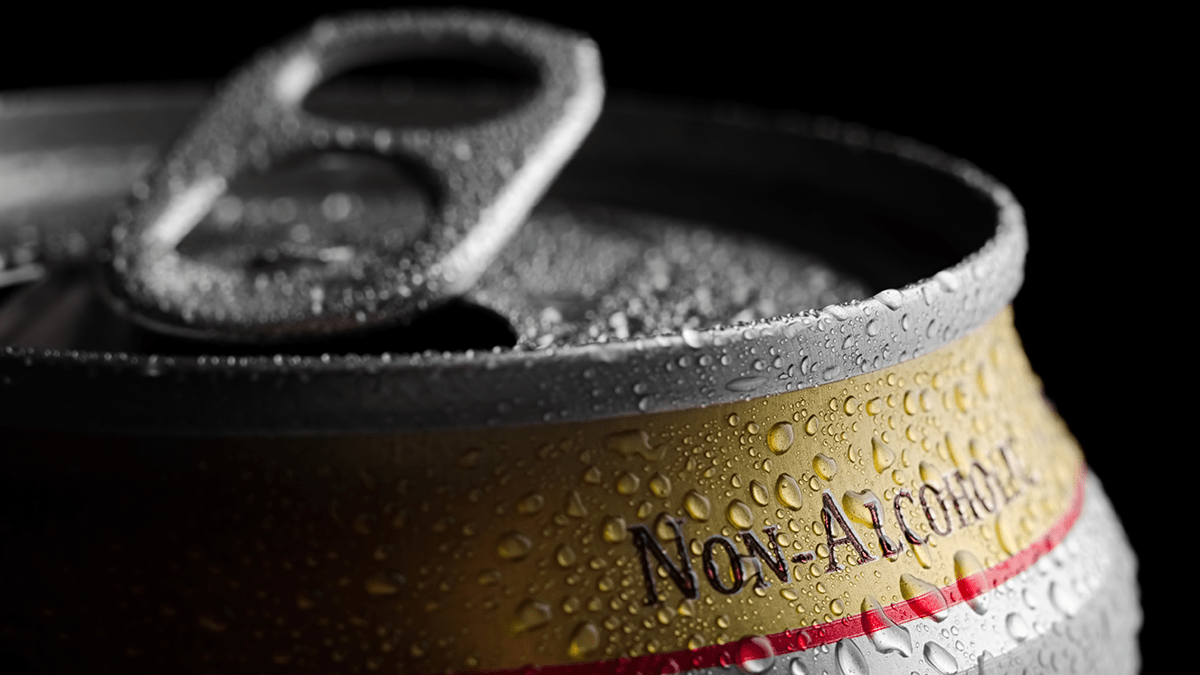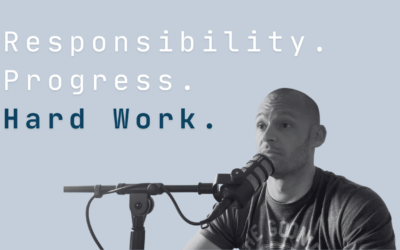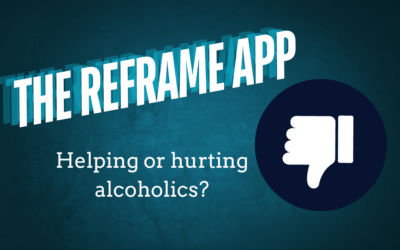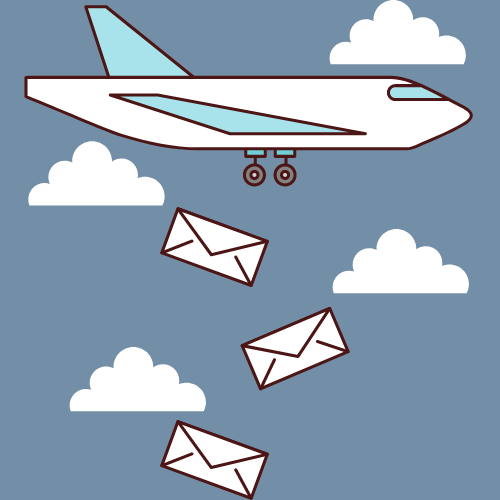If there’s one thing I’ve learned throughout my years of recovery, it’s that people love to have opinions on what does and doesn’t constitute being clean and sober. We should all agree that using drugs and alcohol is a no-no. But when we start taking language like “any mind or mood-altering substance” literally, things start to get hairy. Does something like nicotine use count as a mind or mood altering substance? How about that cup of coffee I had this morning? Or any of the many mood stabilizing and psychiatric medications that help millions around the world? It simply becomes a question of how far we take things.
The North and South Poles
Non-alcoholic beer is another substance with strong opinions in both directions. Some regard it as a harmless way to fit in and enjoy the benefits of a cold beer while avoiding all the negative consequences alcohol has had on their lives. Others would say indulging in one constitutes a relapse – harsh.
In this article, I want to give you my take on drinking non-alcoholic beer while in recovery, the pros and cons of doing so as I see them, and give people some things to think about when determining whether or not drinking non-alcoholic beer is right for them. Because, when it comes down to it, you have to determine what is right for you and your recovery. Only you can determine how strict you need to be in order to maintain long-term sobriety.
What Is Non-alcoholic Beer?
I think it’s always important to define terms. We can’t productively talk about anything if we don’t know exactly what we’re talking about to begin with. So first, let’s define what does and doesn’t constitute non-alcoholic beer.
Law requires that for beverages to claim to be non-alcoholic, their alcohol by volume (ABV) cannot exceed 0.5%. To put this in context, a normal beer has about 5% ABV on average. This means that non-alcoholic beers, at most, contain about one-tenth the amount of alcohol as their regular counterparts.
While there are zero alcohol options that exist, it’s important to note that the majority of non-alcoholic beers do contain a very small amount of alcohol. In order to make claims of being “alcohol free,” the beer must have 0.0% ABV. These are much less common than non-alcoholic beers.
So, in general, a non-alcoholic beer is any beer, or “malt beverage” as they’re called, that contains less than 0.5% ABV.
The Pros Of NA Beer For Recovering Addicts
The way I see it, there are really only two main benefits drinking nonalcoholic beer can have for people in recovery. The first is giving them the ability to partake in social situations where drinking is present without feeling like an outsider. The second is giving people who enjoy the taste of beer the ability to still indulge without all of the negative consequences consuming alcohol has on their lives. That’s really it. And while that list may be short, depending on who you are, those might be seen as huge upsides or they might not matter much to you at all. Let’s dive a little deeper.
Benefit #1 – Social Inclusion
When it comes down to it, we’re all social creatures. We have an inherent need to fit in and feel like part of the group. We can debate on whether or not that’s something we should worry about, but at the end of the day, for most people, we want to feel included. We want to belong.
This can make not drinking hard in certain social situations: weddings, family parties, the sunday football game, etc. In circumstances like these where drinking is prevalent, being the only one without a beer or drink in hand can make you feel out of place. And while some in recovery choose to avoid these types of situations altogether, others are unwilling to make that sacrifice. And many times, they’re impractical to avoid.
It’s important to note here that feeling out of place and like an outsider is largely a construct of our own mind – we’re doing it to ourselves. In fact, if you’re in a situation where other people are making you feel awkward because you’re not drinking, and thereby applying social pressure to drink, you shouldn’t be there to begin with. You won’t be missing out by opting to not spend time with those types of people. End of story.
But sometimes we’re in social situations with people who wholeheartedly support us, yet drinking is prevalent and internally we feel we belong less because we’re unable to do the same. In situations like this, drinking a non-alcoholic beer might be able to remove some of these underlying feelings without incurring the risks associated with consuming a real beer or cocktail. In essence, it can ease the burden of sobriety. We can still connect with others, have fun, and yet still remain sober. Win-win.
Benefit #2 – Limiting Your Sacrifice
Some people just like the taste of beer. Whether it be after work, on a hot summer’s day, a companion to mow the lawn with, or something for a special occasion, many people enjoy beer the same way people enjoy soda, juice, or coffee. And while drinking may or may not have been a problem for them in the past, it’s the alcohol in the beer that causes the issues, not the beer itself.
By having a low-risk non-alcoholic alternative that tastes very similar to real beer, people in this camp have the option to indulge in the occasional brew without having to worry about losing their jobs, their families, and their sobriety. This limits the amount of sacrifice required to stay clean and sober. And we’re much more likely to do things when they require less from us in order to accomplish them. So, the easier we can make it to stay clean and sober, the better.
The Dangers Of Consuming Non-alcoholic Beer In Recovery
Just because non-alcoholic beer is a lower risk alternative to regular beer and other alcoholic beverages, it doesn’t mean the risks shouldn’t be considered. In this section, we consider these risks. Depending on your circumstances and the substances you had a problem with, these may or may not influence your opinion on consuming NA beer in recovery. Some of the inherent dangers are as follows:
Triggering Relapse: The taste, smell, and ritual of drinking non-alcoholic beer may trigger cravings for real alcohol, potentially leading to a relapse.
Psychological Dependence: Relying on non-alcoholic beer as a crutch to cope with social situations or stress can perpetuate psychological dependence on the act of drinking, hindering recovery progress. You should feel willing and able to partake in social situations without feeling pressure to drink or act like you’re drinking.
Not totally alcohol free: While non-alcoholic beers have a very small percentage of alcohol (< .5%), they still contain some amount of alcohol. If your goal is complete and total abstinence, then drinking NA beer is not a viable option.
Stigma and Misunderstanding: There may be social stigma or misunderstanding about non-alcoholic beer, with some people assuming it’s the same as alcoholic beer. This can lead to uncomfortable situations or judgment from inside and outside recovery communities. Also, people you know might see you drinking NA beer and mistakenly think you’ve relapsed.
Things To Consider
When determining whether or not drinking NA beer while in recovery is right for us, there are several factors we should consider. The following is a list of main points I used when determining this for myself:
- How comfortable are you with the idea of consuming a small amount of alcohol?
Because NA beers still contain a small amount of alcohol, it’s important to realize that you technically won’t be totally abstaining from it. If you’re in recovery from substance abuse, you’re going to have to determine what your definition of recovery is and how strict you want to be with abstinence.
- How long you have in recovery or sobriety
I wouldn’t recommend using NA beverages for people in very early recovery or sobriety. The risk of relapse is high at this phase and you’ve had less time to learn to manage cravings and triggers. This makes consuming non-alcoholic beers more dangerous than they’re worth.
- How well you manage cravings
If you think there is any chance that consuming a non-alcoholic beer might trigger cravings for the real thing and put you at risk of relapse – don’t use them. If you’ve had trouble managing cravings in the past or have a history of repeated relapse, it’s better to err on the side of caution.
- Your level of confidence in your recovery
Does simply being around alcohol and other people drinking make you uncomfortable? How confident are you in your commitment to remaining clean and sober regardless of the circumstances? Do you have a strong support network, healthy ways to manage stress, etc?
- Is it really worth the risk?
Even if you’re okay with consuming very small amounts of alcohol, you have years in recovery, and know you’re able to manage cravings well, there’s still an inherent risk. Do you think the benefits we talked about earlier outweigh this risk?
Bottom Line
So far, we’ve looked at what non-alcoholic beer actually is, the potential benefits people in recovery might get from consuming it, and the inherent dangers and problems it poses for them. We’ve also looked at a list of factors one should consider when determining whether or not drinking non-alcoholic beer would be a valuable alternative to regular alcoholic beverages.
But, the bottom line is, we need to make an informed decision about what’s right for us and our recovery. Other people are going to have opinions on what is and isn’t okay when dealing with a substance abuse problem. I’ve seen firsthand the inclination to push that opinion on others. While this often arises from a genuine desire to help, it’s important to keep in mind that there isn’t a one size fits all solution to recovery.
Do what feels right to you while prioritizing your recovery/sobriety. Whether that means drinking NA beers from time to time or remaining totally abstinent from all mind and mood altering substances, if it’s right for you, it’s the right way.





